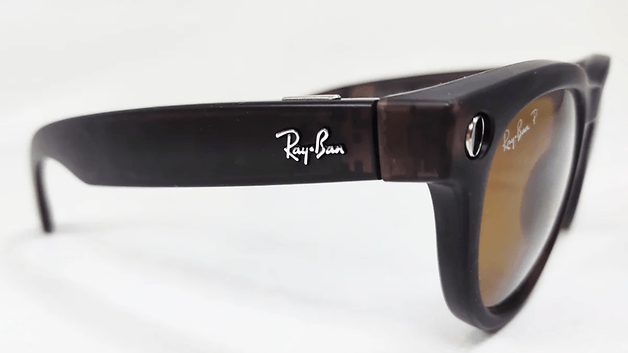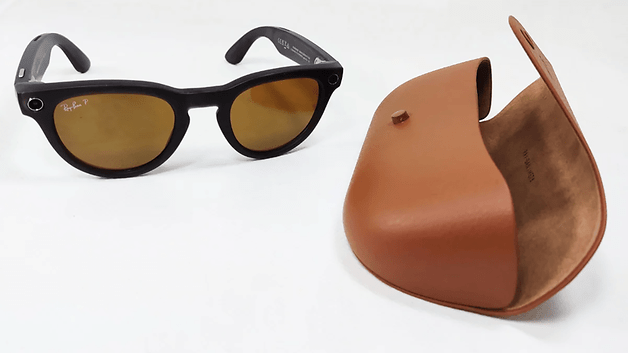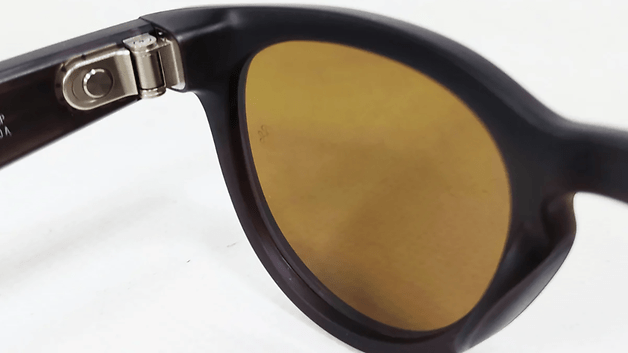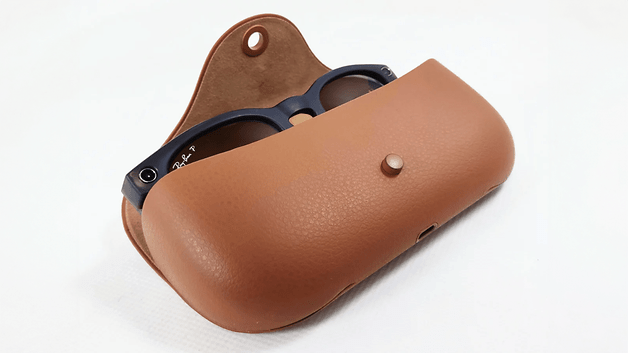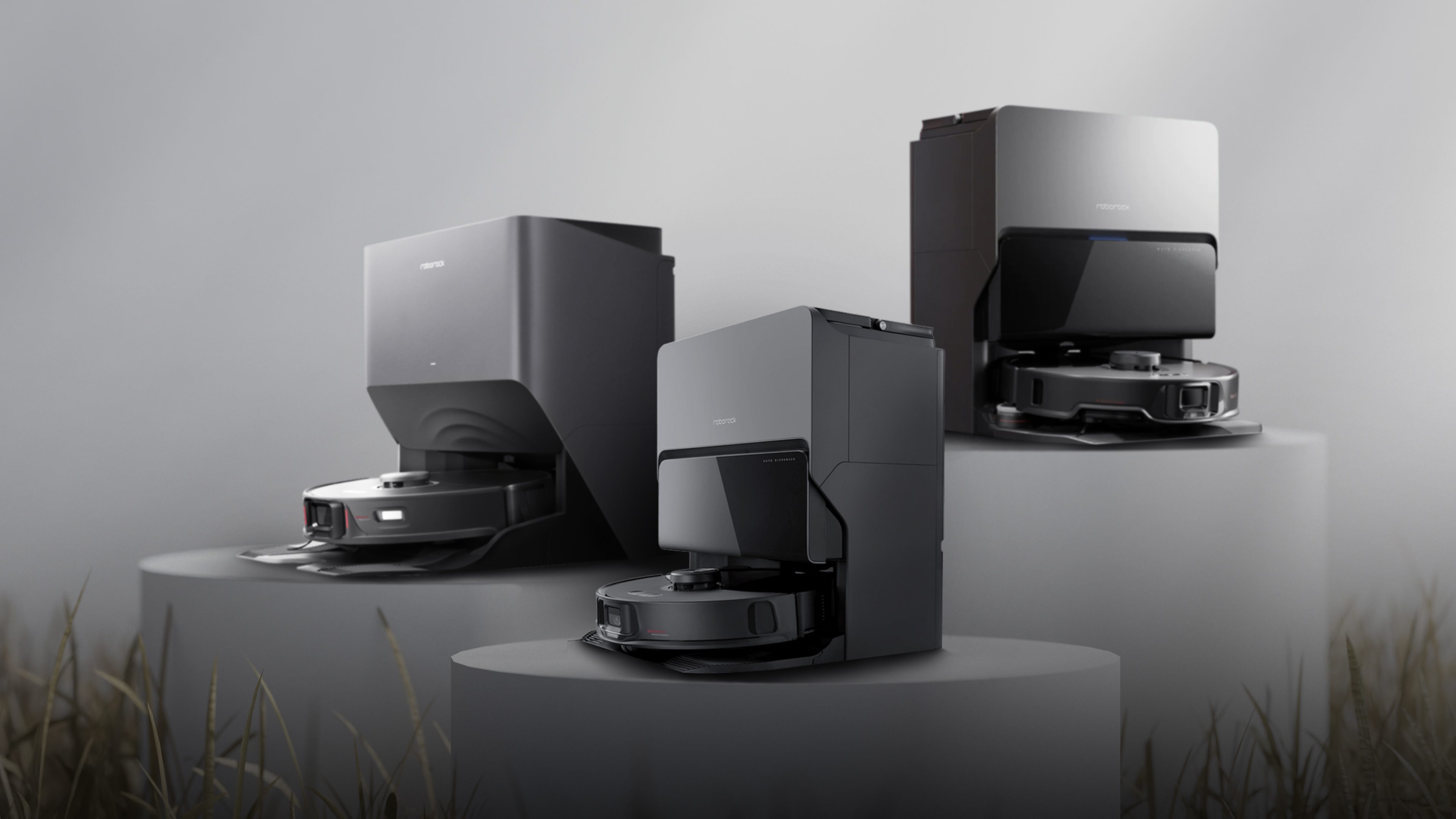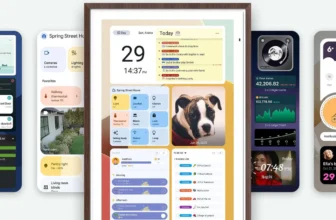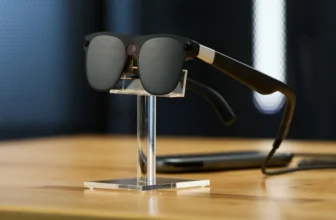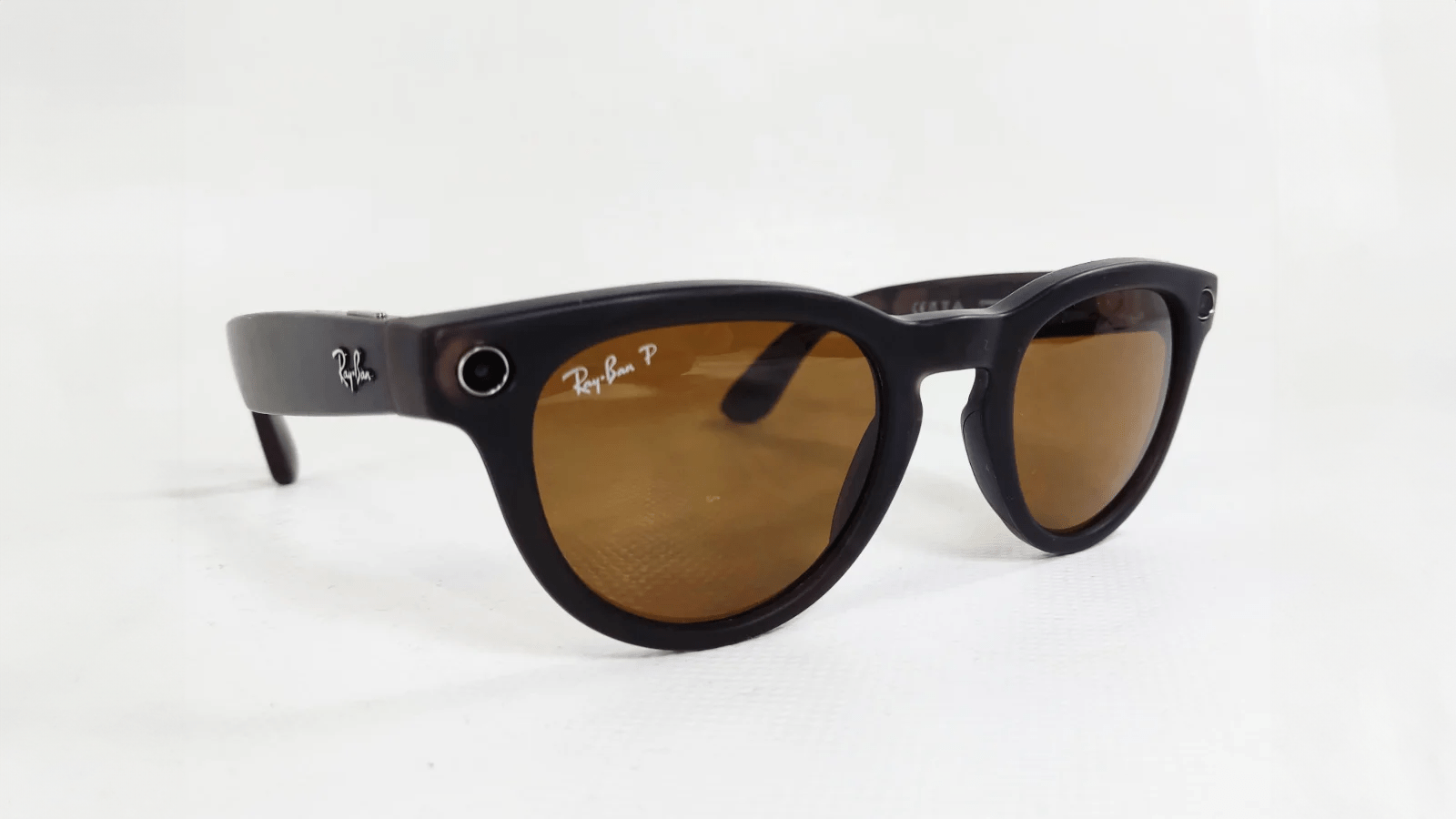
Facebook owner, Meta, and the iconic eyewear brand Ray-Ban continue their partnership with the release of the Ray-Ban Meta Headliner. We already had the opportunity to take a closer look at the smart sunglasses and share our initial impressions in this hands-on.
Ray-Ban Meta Headliner
Good
- Looks like a pair of classic sunglasses
- Comfortable to wear
- Easy to use
- Good sound quality
Bad
- Services arrive pre-selected
- No options to install non-Meta networks
- No subsequent settings are possible concerning the seat
- Loudspeaker could be louder
- Lacks other language support for voice controls
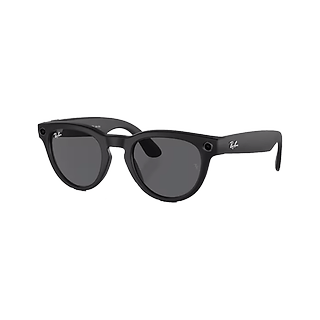

Ray-Ban Meta Headliner: All deals
Ray-Ban Meta Headliner release date and price
The new generation of smart glasses that Meta developed in cooperation with Ray-Ban were infused with several new functions. The Ray-Ban Meta Headliner also aims to attract social media-savvy users, in particular. However, the sunglasses are more of a “smart” wearable medium, as they are not virtual or augmented reality glasses per se, but rather, a functional extension of your smartphone.
The MSRP of the glasses is $329. This makes them more expensive than comparable sunglasses without smart functions, of course. However, I think the asking price is reasonable. If you were to buy them now, you can get them for well under $270 on Black Friday!
Ray-Ban Meta Headliner design and operation
Ray-Ban Meta Headliner: Neither AR nor VR
The smart Ray Ban is equipped with sophisticated technology: A 12 MP camera is integrated directly in front of the glasses, right at the same height as the temples. There are compact speakers located just above the ears that function as a fully-fledged replacement for conventional headphones and can play back media content.
The device is controlled via two operating elements on the right temple: a classic push button to trigger photo and video recordings and a touch-sensitive surface to adjust the volume. To ensure transparency, a discreet white LED in front signals that the camera is active—albeit so discreetly that most observers will only notice it if they look closely.
Please remember to respect the privacy of others and use the technology responsibly to avoid potential social tensions.
Limited Customization
At first glance, the technology-laden Ray-Ban hardly differs from classic eyewear models. The design is based closely on the traditional Ray-Ban style. Although the temples and rims appear somewhat fuller than on conventional models, they are not overly noticeable.
However, customization options are extremely limited: When purchasing one, you can decide between seven size variants. In size M, the glasses have the following dimensions: 13.2 cm distance between the hinges, 4.3 cm lens height, and 15 cm temple length. If this configuration suits the individual’s head shape, the glasses fit comfortably. Weighing around 50 grams, they remain as light as classic sunglasses with thicker plastic frames, even when worn for long periods.
Hardware and software: A focus on Meta services
The smart glasses are technically tailored to the Meta universe and require a smartphone connection. Communication takes place over Bluetooth 5.2, while the specially developed Qualcomm AR1 chip provides WLAN 6 connectivity—a prerequisite to stream camera data packets.
The camera is controlled exclusively via the Meta View app, which is intuitive to use but has clearly limited functionality. The usage options are severely limited to these Meta services:
Communication:
- Telephony only via the basic Android service, Facebook Messenger, or WhatsApp.
- Content can only be shared on Facebook and Instagram.
Music streaming:
- Limited to Amazon Music and Spotify.
- No expansion options.
Another downside? Voice control is currently only available in English, Spanish, French, and Italian. There is no German language support yet.
Ray-Ban Meta Headliner: Impressive microphones and speakers
The Ray-Ban Meta Headliner relies on impressive audio technology: five strategically placed microphones in the frame of the glasses ensure high-quality sound recording. This design offers its fair share of advantages, but also poses challenges. The close proximity to your nose and mouth means breathing noises are almost inevitably included in video recordings.
The integrated loudspeakers deliver a thoroughly decent sound impression. Sound is balanced, albeit with the potential for more powerful bass. The glasses are certainly suitable as a replacement for headphones but only under optimal conditions. In quiet environments, audio quality is impressive, whereas in loud environments, background noise quickly overpowers the sound and impairs the listening quality.
Ray Ban Meta Headliner: Camera with compromises
The integrated 12 MP camera is technically reminiscent of early smartphone generations. It achieves a resolution count of 3,024 × 4,032 px for photos and records videos at 1,440 x 1,920 px at 30 frames per second. These specifications make it clear: The Ray-Ban Meta Headliner was designed as an additional gadget, and not as a professional recording device. Here is a sample video:
These technical limitations are particularly noticeable:
- Only portrait format recordings.
- No format changes are possible.
- Video recording time is limited to between 15 seconds and three minutes only.
The image quality varies depending on the lighting conditions:
- In good light: Usable snapshots.
- Vivid contrast.
- Crisp colors with a slight red tint.
- Under poor lighting conditions: Increased image noise.
- Decreased image sharpness in both photos and videos.
Ray-Ban Meta Headliner battery
The target group for the glasses is more for fashion than technology enthusiasts, and this is reflected in the details. The glasses come in a visually appealing, robust case that not only offers protection, but also doubles up as a charging station and additional battery.
Due to the limited space available in the slim glasses, battery life is naturally limited as well. This is clearly evident in video recordings: after 26 one-minute videos—which corresponds to around half an hour of use with short interruptions, the battery still holds a 50 percent charge.
Meta’s predicted usage time of four hours is also put into perspective when listening to music. After one hour of Spotify use, the app still showed a 63 percent battery charge.
Ray-Ban Meta Headliner conclusion
The Headliner sunglasses developed by Meta and Ray-Ban is a fashionable wearable device with limited additional benefits. If you’re into social media, you can quickly take and share photos and videos via the temple. The $329 asking price, which is around a third more than comparable glasses without technical extras, therefore seems reasonable. If that’s adequate for your needs, or if you want to listen to a few songs via the glasses every now and then, you can go for it.
Do bear in mind, however, that these are not augmented reality glasses that help you navigate through the city with super fancy symbols or display real-time translations, but “just” a simple pair of sunglasses “Plus”.
However, demanding photographers will be disappointed. The camera offers no setting options for format and image size, and the battery performance is mediocre at best. The advantage? Even when the battery is empty, the Ray-Ban Meta Headliner is still a stylish pair of sunglasses that looks cool on the beach or anywhere else.
What do you think? Do smart sunglasses serve an actual purpose for you that goes beyond the capabilities of classic sunglasses?

